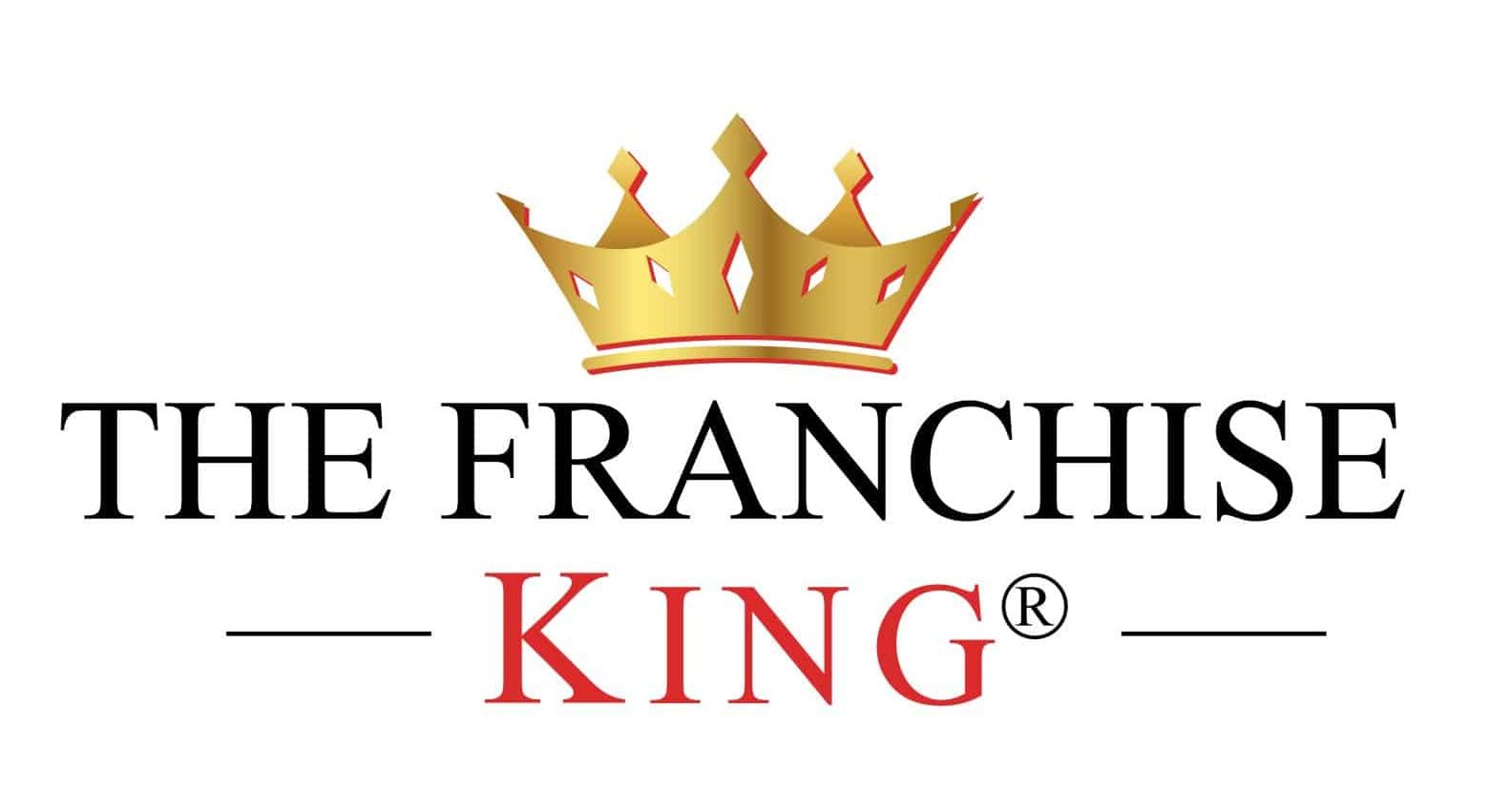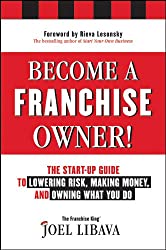
Before I dive into whether or not the “Responsible Franchising” initiative put together by The International Franchising Association (IFA), will make franchising better, you first need to know what it is. And what it includes.
The Responsible Franchising Initiative
From Matthew Haller, the President and CEO of the IFA:
“The IFA as an organization, and our members who control the rights to offer an individual a license to operate a franchise in their system, have great power, but also the responsibility to protect the franchise business model from misuse. That is where responsible franchising comes in, and the importance of protecting, enhancing and promoting what that means.”
Sounds like a plan. I like it. Continue reading this post to find out what I discovered.
Responsible Franchising Includes These 4 Things
After he announced this initiative, Haller invited the CEO of Rolling Suds, Aaron Harper, to present his 4 tenets of Responsible Franchising.
Note: Harper, as the Franchise Development Director for another brand, sold more than 400 franchises before starting Rolling Suds.
According to Harper, these are the 4 things that dictate what Responsible Franchising must include:
- Setting Clear Expectations: Responsible franchising requires painting a realistic picture of what the franchisee can expect after signing the franchise agreement. Honest communication about challenges, timeframes, and potential hurdles fosters trust, aligns aspirations, and lays a solid foundation for a successful partnership.
- Capital Adequacy: Responsible franchising involves meticulous planning, ensuring that there’s sufficient capital to not just sell franchises, but to support the growth expected from them.
- Choosing the Right Franchisees: Handpicking franchisees is an art that defines responsible franchising. It’s about finding individuals who resonate with the brand’s ethos, have the right skills, and align with long-term goals. Each franchisee should be a strategic partner, someone who believes in the brand as much as the franchisor does.
- Sustainable Growth: Responsible franchising begins with a responsible growth strategy. The growth of a franchise should be like a well-paced marathon, not a sprint. Sustainable growth ensures each franchisee receives the attention, training, and support necessary for success.
On paper, those items look pretty good.
Again, on paper (or in this case, on a webpage).
My Thoughts On The Responsible Franchising Initiative
My first thought?
Why didn’t Matthew Haller come up with the 4 items above? After all, he’s the CEO of the IFA.
Secondly, why did he choose Aaron Harper to speak on the Responsible Franchising initiative?
Was it because he was a successful franchise salesperson?
Because he’s a franchisor?
Now, I don’t know Harper. I’ve never even heard of him. I don’t think he’s one of those franchise matchmakers.
One reason may be that I’m not a member of the IFA. So maybe Harper is a big-wig there. I have no clue.
But again, why him?
Shouldn’t the head of the largest franchise lobbying…whoops, I mean the largest franchise association in the U.S. be the dude who writes it up and announces it? I say yes!
With that in mind, let’s go over the 4 things Harper came up with. The things he thinks will help franchising (as an industry) become more “responsible.”
1. Setting Clear Expectations
I’m 100% in agreement that franchisors need to paint a clear and realistic picture of what a new franchisee should expect after they sign their franchise agreement.
Like how long until the real estate department gets involved in helping franchisees secure a location for their business.
And yes, I’d like to see franchisors to include realistic break-even times.
2. Responsible Franchising And Capital Adequacy
In this case, Harper is referring to the franchisor.
And of course the franchisor needs to have sufficient funds to grow and support franchisees. But Harper missed something critical.
To me, “capital adequacy” needs to refer to prospective franchisees.
As in, do people looking to become franchise owners have a sufficient net worth and enough liquid capital to get them through the always tough first year or so of being the owner of a franchise?
If they do, great.
But what if their financial situation is borderline?
Wouldn’t the “responsible” thing be to turn them down for a franchise?
In my view, any serious initiative like this needs to require that.
And it shouldn’t take a lot of courage to say no to undercapitalized franchise prospects.
3. Choosing the Right Franchisees
This is big. And it’s not something that’s not easy to do-especially if you’re a brand-new franchisor.
Bluntly, it’s difficult for most franchisors to turn away a $40,000 check (for the upfront franchise fee).
But it needs to be done.
This next part doesn’t resonate with me.
“Each franchisee should be a strategic partner, someone who believes in the brand as much as the franchisor does.”
Take that out, Aaron. Why?
Because It’s difficult to believe in a brand (business-wise) if you’re not part of the brand.
More specifically, as a consumer I may believe that Dairy Queen makes the best ice cream, and that the DQ brand seems to “get it.”
It’s quite another to be a DQ franchisee, who’s buying their products from headquarters and paying a hefty royalty every month.
Bottom line:
Choosing the right franchisees for your franchise concept comes with experience.
It also comes from your gut feeling about a prospect.
Other questions to ask:
Do they need to like your brand?
Of course.
Do they need to be rule-followers?
Yes.
Do you need to like them and trust them?
Absolutely.
4. Sustainable Growth
I love this one! Why?
Because some franchisors grow their systems too fast.
I know: “I’d love to have that problem, Joel.” But hear me out.
While growing fast feels good, dopamine-rush-wise, and money-wise, it could come back to bite you. Why?
Because you may not have the infrastructure in place to handle your rapid growth.
For example, if you’re selling 15-20 new franchises a month, can your real estate department help secure locations for all of your new franchisees? I hope so.
Because if word starts getting around that you’re selling lots of franchises but hardly any of them are opening, it’s only a matter of time when franchisees who can’t open will start asking for refunds. Heck, they may even sue you!
Next, do you have enough employees in place…in operations, IT, marketing and training to handle your growth?
On a related note, is your headquarters big enough for the things I mentioned above?
And finally, will you really be able to support all of the new franchisees you’re bringing on board?
I hope so.
To summarize this section, you need to control your growth as much as you can. Heck, others have done so successfully. So maybe ask them how they did it?
Does The Responsible Franchising Initiative Have Any Teeth?
So what will the IFA do with franchisors who aren’t following Responsible Franchising’s principles.
Specifically, what are the consequences for Irresponsible franchise players?
For example, will a franchisor who has done this get kicked out of the IFA?
And what if a franchisor who isn’t doing the right things isn’t in the IFA?
Will the franchisor be reported to the proper authorities…like the Federal Trade Commission (FTC), or the State’s Attorney General?
What about franchise brokers and franchise representatives who aren’t being responsible?
Will they be punished?
How?
And what about people who are new to franchising and have set up websites that engage in this stuff.
What should happen to them?
I almost forget. What about the franchisors who Sean has called out for years for being irresponsible? What will the IFA do about them?
What about some of the franchisors I’ve named as being less than stellar over the years?
Has the IFA said anything to them?
Have they engaged in any activities aside from simply collecting annual dues from them?
My point?
While it’s great to promote Responsible Franchising, there needs to be consequences for those in the franchise community who are irresponsible.
Plainly speaking, if the Responsible Franchising initiative doesn’t have teeth, it’s meaningless.
Right?
About the Author
The Franchise King®, Joel Libava, is a leading franchise expert, author of "Become a Franchise Owner!" and "The Definitive Guide to Franchise Research." Featured in outlets like The New York Times, CNBC, and Franchise Direct, Joel’s no-nonsense approach as a trusted Franchise Ownership Advisor helps aspiring franchisees make smart, informed decisions in their journey to franchise ownership. He owns and operates this franchise blog.
Note: When you buy through links on this website, we may earn an affiliate commission.









